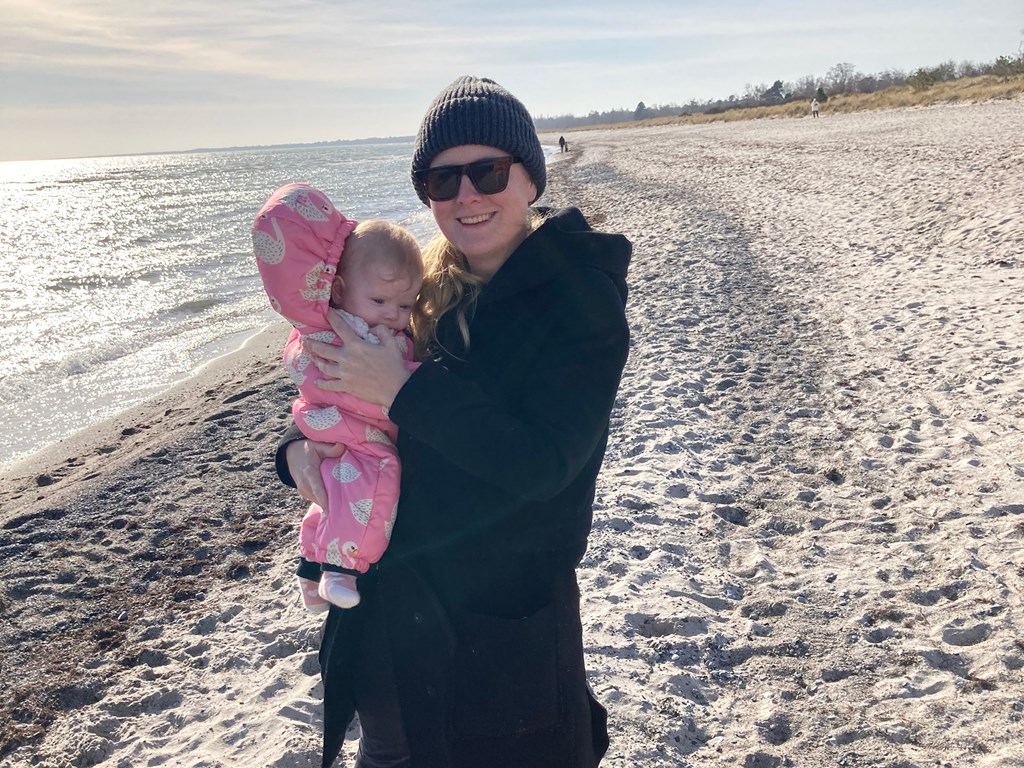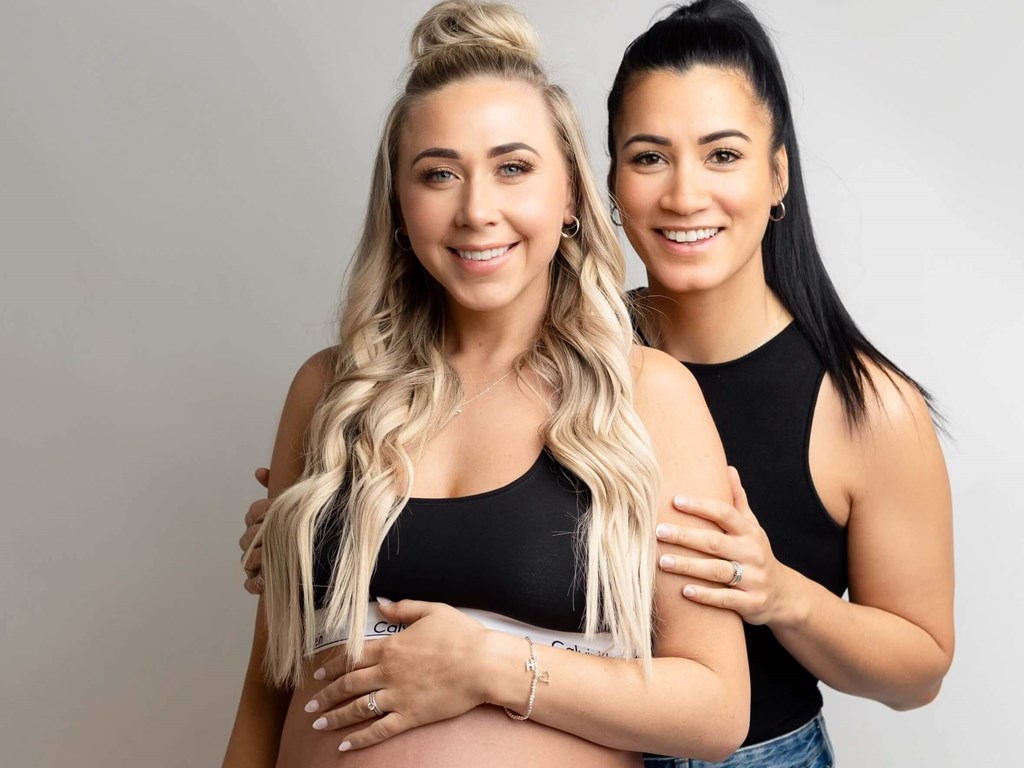The process of getting a sperm donor from A to Z
Are you wondering how to start the process of getting a sperm donor? We have gathered all the information you need in this blog post.

Families come in all shapes and sizes, and for some, starting a family means using a sperm donor. Whether you're a solo mum, in a same-sex relationship or exploring your options due to fertility challenges, building a family with the help of a donor is a brave step towards parenthood.
The decision of using a sperm donor oftens comes with a whirlwind of questions: What’s the process like? How do you find the right donor? What legal aspects should you consider?
In this guide, we'll take you through the process of getting a sperm donor. From understanding the considerations involved to choosing a donor and planning for the future. We will give you a clear overview of the process of using a sperm donor from A to Z.
Choosing to use a sperm donor
There are a variety of reasons why people consider using a sperm donor. Some single women feel ready to become mothers but don't want or feel they have time to wait for a partner. For same-sex couples, using a sperm donor can be an opportunity to have a biological child and heterosexual couples facing fertility challenges may find that using a donor is the best option to achieve their dream of parenthood. Each situation brings its own set of considerations, but they all have one thing in common: the decision to go down this route comes from a deep desire to have and raise a child.
Emotional readiness
The emotional aspect of using a sperm donor is an important part of the process. Accepting this decision may mean that you have to let go of certain expectations about traditional family structures or about genetics. As you move forward, you may find it helpful to reflect on your motivations and hopes for the future. You may feel apprehensive at first and that it is completely normal. Some parents-to-be worry about bonding with their child if they don’t share the same genetics. If you feel this way, it’s a good idea to focus on the beauty in creating a family filled with love and purpose. Love is what makes a family – not genetics.
Taking time to process and feel confident in your decision is key. You may wish to seek support through counseling, join online communities of people with similar experiences or talk openly with friends or family. Many parents-to-be find that the reassurance and support of others can make this journey feel not only achievable but also truly fulfilling.
Finding a sperm bank
When looking for a sperm bank, start with research. Look for sperm banks that prioritise quality and safety through rigorous testing and clear guidelines for donor selection. This transparency can help ensure that you receive accurate, detailed information about each donor’s medical history, personality and genetic background, providing peace of mind in your decision.
Another consideration is the range of services offered. Genetic screening and counselling, assistance with donor selection and a fertility consultation can be important aspects to consider. Choosing a bank which offers these services can help make the process easier and reassuring. At European Sperm Bank, we believe that transparency in screening procedures and pricing is paramount to ensuring a smooth process.
The sperm donor selection process
Choosing a donor can be one of the most exciting - and sometimes overwhelming - parts of the process of getting a sperm donor. There is a lot to consider so take your time to make the right choice for you and your family. Some of the things you can use to base your decision on are:
Hobbies, physical appearance or medical history - what is important to you?
There are many characteristics to consider when you go through donor profiles. They include:
- Physical characteristics: For some it is important to have physical similarities between the donor and themselves. Detailed donor profiles with hand-drawn portraits, descriptions of eye colour, height and hair colour or photo matching can help make the choice easier.
- Medical history: All donors go through thorough health screenings, but if you or your family have certain medical conditions, you may prioritise donors who don’t have that particular condition in their family.
- Personality and interests: It’s impossible to fully get to know a person through a profile, but details about the donor’s personality, hobbies and interests can give you an idea of who the person is.
ID release or No ID release donor
In some countries, you can choose between an ID release and a No ID release donor. With an ID release donor your child will have the opportunity to get identifying information about the donor when they come of age. That is not an option with a No ID release donor, but all the information from the donor profile is available. It is important to note that in most countries it is not possible to choose between the two.
Choosing a clinic
If you are using a sperm donor, you will need to choose a clinic where you can have your treatment. It is important to find a clinic you can trust and where you feel supported. Read reviews from previous patients to get an idea of what to expect and look for certifications and accreditations so you can be sure of the standards. It is also a good idea to find out what kind of treatment and services they offer.
Legal landscape and the sperm donation procedure
Laws regarding sperm donation vary widely from country to country, and in some cases from region to region. In general, these laws define the rights and responsibilities of all parties involved. In some countries you can only choose an ID release donor, while in others you have the possibility to choose between an ID release and a No ID release donor.
The important thing to keep in mind is that no matter what type of donor you choose, the sperm donor has no parental rights or legal responsibility over any future children.
Pregnancy slot and Family Limits
In relation to legislation about sperm donation, some countries have rules when it comes to the number of families a donor can help. That is why you in some cases need to purchase a Pregnancy Slot depending on your country of treatment. When you buy a Pregnancy Slot you get the right to use the specific donor – also if you are planning on having siblings in the future. However, it is important to note that a Pregnancy Slot doesn’t guarantee that straws from your donor will be available. If you are planning on expanding your family later, it is a good idea to purchase a sperm storage so you can be sure that you have straws for the future.
For some it is important that there is an even smaller cap of how many families a donor can help. In this case, it is possible to select between a limited range of donors with lower Family Limits.
MOT and treatment types
Another part of the process is to choose the right MOT for your fertility treatment. MOT is short for Motile Total and when you look at different donors you will notice you sometimes can choose between MOT20+ and MOT10+. But what does it mean? MOT refers to the number of sperm cells moving forward. If you are having IUI treatment it is recommended to choose MOT20+ while MOT10+ is sufficient for IVF. It is always a good idea to talk to your clinic to get guidance on the right treatment and MOT for you.
A support system can be a big help
When the process of getting a sperm donor is over the next chapter awaits. This involves having treatment at your clinic and hopefully getting pregnant. Becoming a family is a lifechanging experience full of emotions. Surrounding yourself with a supportive network can be a big help as your family grows. But where do you find the right support?
- Online forums: There are many online forums and social media groups for solo mums and couples using sperm donors. This is a great way to openly discuss the ups and downs of being a donor-conceived family.
- Close friends and family: Communicating your decision with supportive loved ones can provide a sense of belonging and reassurance. It may be helpful to educate them about the process, especially if they are not familiar with donor conception, so that they can offer meaningful support along the way.
- Parenting groups: Sharing experiences with others who are in the same position as you can be of great value. Parenting groups provide an ideal space for that.
Raising a donor-conceived child
As your child grows and becomes more curious about his or her origins, you might have some considerations about how to talk about being a donor-conceived family. One of the most empowering things you can do for your child is to introduce their conception story early in an age-appropriate way.
Open conversations about how your child came into this world will help your child understand his or her background and identity early on. A good idea is to use books to explain donor conception, for example a customised children’s book that can help start the conversation.
The next step in your sperm donor selection process
Perhaps this blog post has made you aware of new terms or considerations when it comes to the process of using a sperm donor. It's natural to have lots of questions during the process, and if you have any, we're always happy to help. You can also create a profile and see what our donor profiles look like - it's completely free and with no obligation.
Read more
 Customer stories
Customer storiesSolo mum Pia chose the same sperm donor for all of her children
Pia Jensen from Copenhagen, Denmark, chose the same donor for her children – and thus, Anna became a big sister to not just one but two full siblings. This was possible because she chose to set up a storage solution holding donor sperm for more than one course of treatment at the sperm bank. The benefits include the possibility for your child to have a full brother or sister.
 Personal stories
Personal storiesHow Holly and Rumer chose their sperm donor after getting caught up in every little detail
Rumer and Holly put a lot of pressure on themselves to choose the “perfect” sperm donor for their family. Now that their son Freddie is here, all that worrying seems far less important.
 Anne Petersen
Anne Petersen

